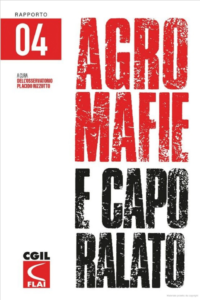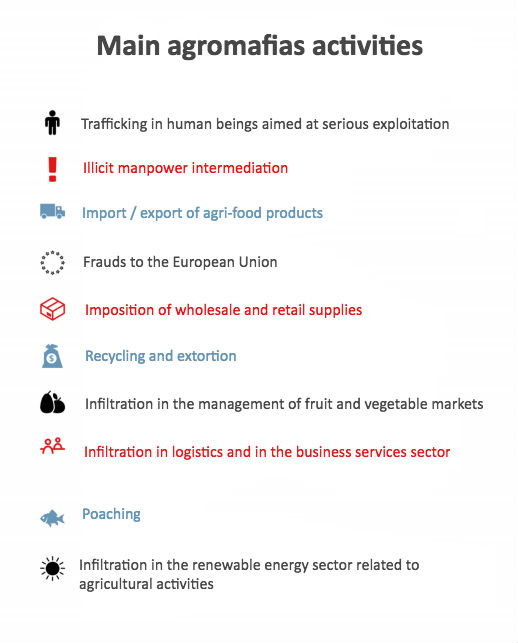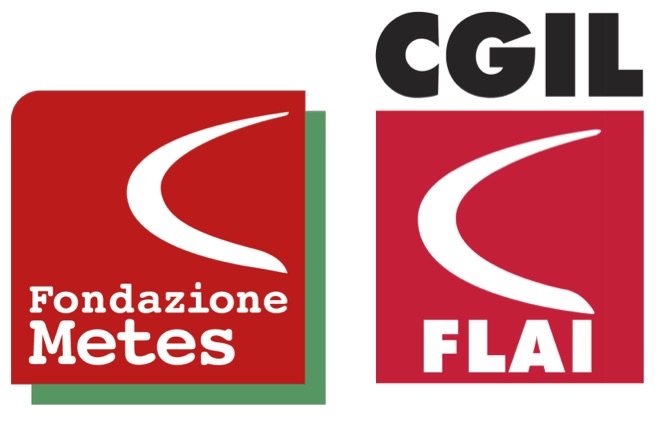What is the Placido Rizzotto Observatory
The Observatory was founded by Flai Cgil in 2012, just a few months after the state funeral celebrated in Corleone in memory of Placido Rizzotto, a trade unionist killed by the Sicilian Mafia in 1948. Its task is to investigate the intertwining of the agro-food chain and organized crime, with particular attention to the phenomenon of the hiring and infiltration of mafias in the management of the agricultural labour market. The Observatory promotes synergies among the operators involved in various ways in the affirmation of legality in the agri-food sector: trade unionists, magistracy and law enforcement representatives, academic world, associations and third sector.

The report
The main activity of the Observatory is the drafting of the report “Agromafias and Gangmaster”, a two-year research and investigation report about the infiltration of mafias in the agri-food supply chain and working conditions in the sector.
The Fourth Report, released in July 2018, was an opportunity to take stock on the situation of the illegal economy in the food sector, to explore the legislation to fight workers exploitation since 1950 and to piece together, through some case studies, the situation of exploited workers in agriculture.

The data
The invisible economy in Italy is estimated to be worth about €208 billion; irregular work is worth 77 billion, or 37.3% of this. Irregular work accounts for 15.5% of the added value of the agricultural sector. Irregular labour and the gangmaster system in agriculture amounted to 4.8 billion euros. While 1.8 billion euros are avoided in taxes.
Between 400,000/430,000 agricultural workers are exposed to the risk of irregular work under gangmasters; of these more than 132,000 are in a state of serious social vulnerability and severe suffering in employment terms. In addition, more than 300,000 agricultural workers, or almost 30% of the total, work less than 50 days a year. Presumably this includes a lot of irregular/illegal work. The rate of irregularity in labour relations in agriculture is 39%.
The conditions of workers subject to severe exploitation in agriculture: no protection and no rights guaranteed by contracts or law; an average pay of between 20 and 30 euros a day; piecework for a fee of €3/4 for a 375kg container; a wage lower by about 50% than the provisions of the CCNL and CPL. Women under gangmasters receive 20% less salary than their male colleagues. In the severe cases of exploitation analysed, some migrant workers received a salary of 1 euro per hour. The average working day is from 8 to 12 hours.
Workers under gangmasters have to pay them for: transportation depending on distance (on average €5 euros); basic necessities (on average €1.5 for water, €3 for sandwiches, etc.)

The role of mafias
The last part of the report, “Foreign mafias and the case of the Bulgarian mafia”, highlights how the spread and branching out of the foreign mafia, “enables it to operate simultaneously in different parts of the country and therefore to hire labour, offer it on the market of illegal supply/demand, establish/negotiate interests with irresponsible/dishonest entrepreneurs, and make money from this (…).
These modalities are antithetical to those that the unions put in place to defend workers, regardless of their nationality. From this point of view, the criminal groupings that manage segments of the supply of labour with rules and behaviour that are punitive and discriminatory can be considered as micro-organisations parallel to the union ones, acquiring, for this reason, consequently, not only a “shadow function” but specifically the identity of “delinquent union”.

A summary of the report can be downloaded here
The whole report can be purchased here
(All images are Placido Rizzotto Observatory’s elaborations)
